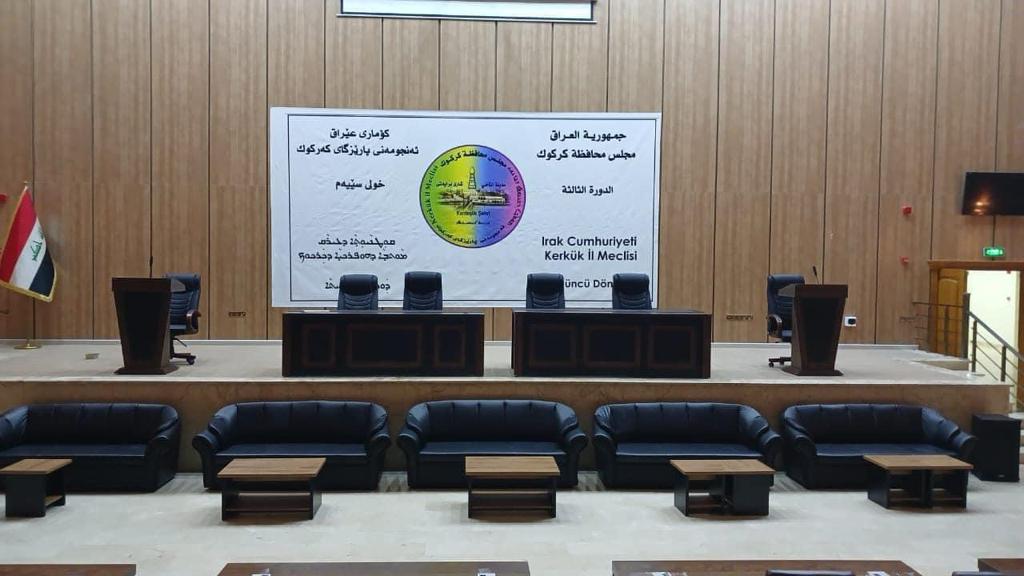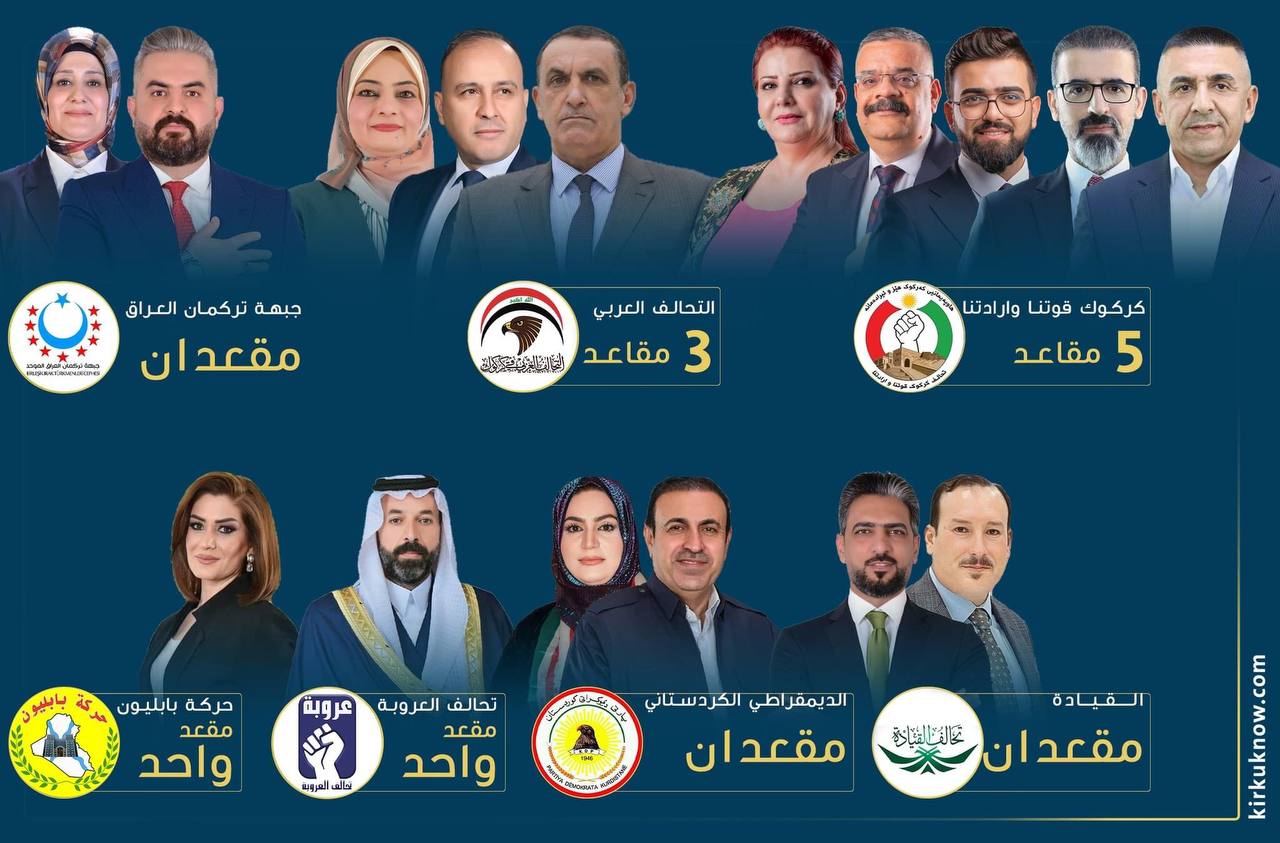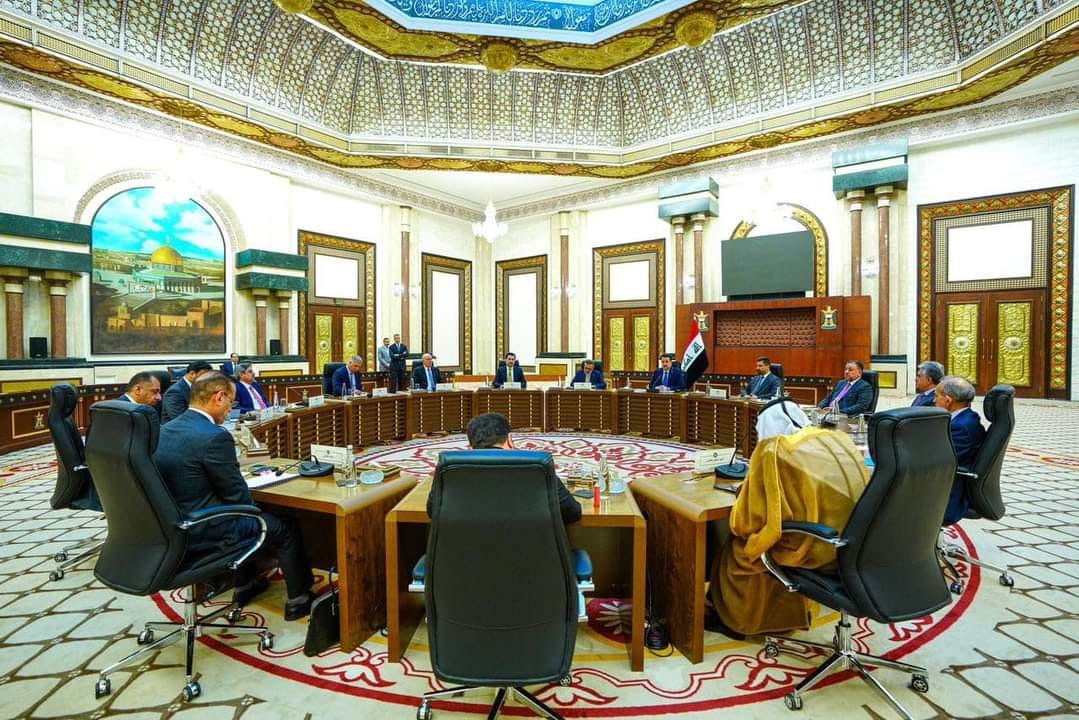A senior official of the Patriotic Union of Kurdistan PUK in Kirkuk revealed that the PUK finally agreed to rotate the position of governor of Kirkuk every two years “for the sake of Kirkuk,” with a Kurdish candidate from the PUK assuming the position in the first two years, but, “they ruined the matter and we are back to square one.”
The statement came after the end of the third meeting of the political blocs representing the components of Kirkuk (the Kirkuk Administration Coalition), chaired by Muhammad Shiaa al-Sudani, which was held on Wednesday, May 29, in Baghdad, in which the participating forces failed once again to reach an agreement regarding the formation of the local government.
The leader of the PUK, who said that he was aware of the talks on forming the local government in Kirkuk and requested that his name not be revealed due to the sensitivity of the issue, told (KirkukNow), “Initially, our opinion was that a Kurdish candidate, specifically from the Patriotic Union, would assume the position of governor for four years because we were the first winner in the elections by winning five seats.”
“In return, the position of head of the provincial council to be given to a candidate from the Arab coalition in Kirkuk, headed by Rakan Saeed al-Jubouri, who won three of the six seats that the Arabs won but after we assessed the situation, we learned that this effort will not succeed so we accepted a rotation every two years,” the Puk official added.
“We see that as long as the PUK is the first winner in the elections, it has the right to assume the position of governor in the first two years, after which the candidate of the Arab Alliance in Kirkuk will assume the position for the last two years, and the other positions are distributed among the ethnicities and parties according to the electoral entitlement without depriving any party.”
The intensification of the meetings and efforts of the Premier followed the dispute between the factions of the Kirkuk provincial council, which has not held the first meeting yet and the formation of the new administration has been disrupted, although according to law the first meeting should have been held on February 16, two weeks after approval of the results for December 18 Provincial Council Elections.
According to the amended Iraqi Provincial Law No. 21 of 2008, the council must elect the governor and two deputies within 30 days from the date of its first session.

According to the Puk official, the KDP and its Turkmen and Arab alliances rejected the idea.
“But in yesterday’s meeting, it became clear that some parties reject the proposal so we won’t bargain further for our votes and power.”
The statement of the Baghdad meeting, published by the Iraqi Prime Minister’s Office, indicated that “an agreement was concluded to hold a session of the Provincial Council,” however, no time frame was set seven months following the Provincial Council Elections.
The source said, “The talk about holding a provincial council session is only to hide the failure of yesterday’s meeting.”
According to the source, the Kirkuk administration coalition composed of the winning blocs in the provincial council elections was divided into two parts with divergent opinions, noting that “the conditions of the region and regional and international factors played a role in that.”
He stressed that there is a consensus between the PUK and a section of Arabs and Christians, while the KDP, the Turkmen, and the Leadership Alliance headed by Khamis al-Khanjar all adopt similar opinions.
“According to our understanding, we believe that the KDP views the position of Kirkuk governor and the position of the next Prime Minister of the Kurdistan Regional Government (KRG) as one package,” the Puk leader said.
“They want to ensure that the position of the prime minister is guaranteed for Masrour Barzani without problems... As for Khamis Al-Khanjar, he seeks to have a role in Kirkuk and join the local government.”
The northern, oil-rich city of Kirkuk, is home to about 1.77 million Kurds, Turkmen, and Arabs. Located 238 kilometers north of Baghdad, Kirkuk is an ethnically mixed province and has long been at the center of disputes between the federal government in Baghdad and the Kurdistan Regional Government KRG.
The highest legislative and supervisory authority within the boundaries of the governorate administration shall be with the Council, which has the right to issue internal laws and instructions for managing the affairs of the governorate, formulate the general policy of the governorate, discuss and approve the governorate’s budget and project plans.

The leader of the Patriotic Union of Kurdistan pointed out that "the Turkmen Front, although it has two seats and is divided into two fronts, is also close to the KDP and Khamis Al-Khanjar, and they explicitly want to divide the four years of the position of governor into three sections, with 16 months for each ethnicity."
The Kirkuk Provincial Council consists of 16 seats: seven seats for the Kurds, five for the PUK, and two for the KDP. The Arabs earned six seats (the Arab Alliance in Kirkuk 3 seats, the Leadership 2 seats, and the Arab Alliance one seat) while two seats went to the Turkmen component, in addition to the Quota seat for the Christians.
The provincial council session requires the presence of nine members out of a total of 16 to vote on candidates for local government positions.
Under the Provincial Council Elections Law, power is shared with fair representation to ensure the participation of the components of the multi-ethnic province regardless of the election results, as stated in Article 35 regarding Kirkuk.
The leader of the PUK warned that “the situation is heading towards further stagnation. “There was a convergence of views in the first and second meetings, yet there are external interferences in the case, and the law deprives the winners of obtaining their entitlements.”





